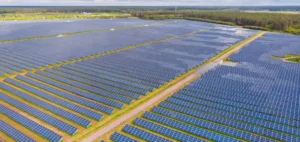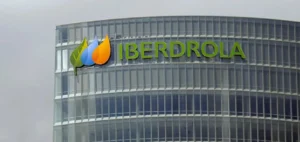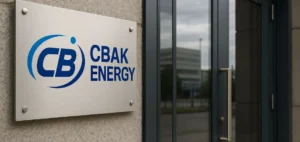Donald Trump’s return to the U.S. presidency marks a turning point in the country’s energy policy. On his first day in office, he signed several executive orders aimed at reviving domestic hydrocarbon production and officially announced another withdrawal from the Paris Agreement on climate. These decisions have raised questions about the potential impact on major American companies’ energy transition strategies.
U.S. Companies Maintain Their Commitments
According to Thierry Laborde, Deputy CEO of BNP Paribas, companies, including in North America, will not reverse their commitments to energy transition. “Their transition plans are in place, and they will continue them,” he stated on France Inter. He noted that large industrial and financial groups have incorporated long-term energy transformation imperatives, regardless of government policy changes.
This trend is mainly driven by investor and market pressure, which increasingly values initiatives promoting a diversified energy mix. Energy and industrial sector companies must also adapt to local and international regulations that, despite U.S. decisions, continue to evolve in favor of emission reductions.
The Withdrawal of U.S. Banks from the Net-Zero Banking Alliance
In this context, several U.S. banks have announced their departure from the Net-Zero Banking Alliance (NZBA), a program initiated under the United Nations to encourage carbon neutrality in the financial sector. Since December 6, six major financial institutions – Goldman Sachs, Wells Fargo, Citi, Bank of America, Morgan Stanley, and JPMorgan Chase – have exited the initiative.
This withdrawal could be seen as a signal of a resurgence in fossil fuel financing. However, industry experts believe these banks will continue investing in renewable energy. “They are still massively funding green energy projects,” Laborde emphasized, pointing out that the sector’s growing profitability continues to attract capital.
A Rapidly Expanding Renewable Energy Market
Despite political uncertainties, the renewable energy market continues to experience strong growth. In 2024, the sector accounted for approximately $2 trillion in investments, according to UN Climate estimates. Energy sector companies are diversifying their supply sources to meet increasing demand and reduce their exposure to hydrocarbon price fluctuations.
In this context, the U.S. industry could continue positioning itself as a key player in the energy market, combining investments in both fossil and renewable resources. The energy transition does not appear to be undermined by current political choices but rather driven by economic and industrial dynamics that extend beyond government policies.





















